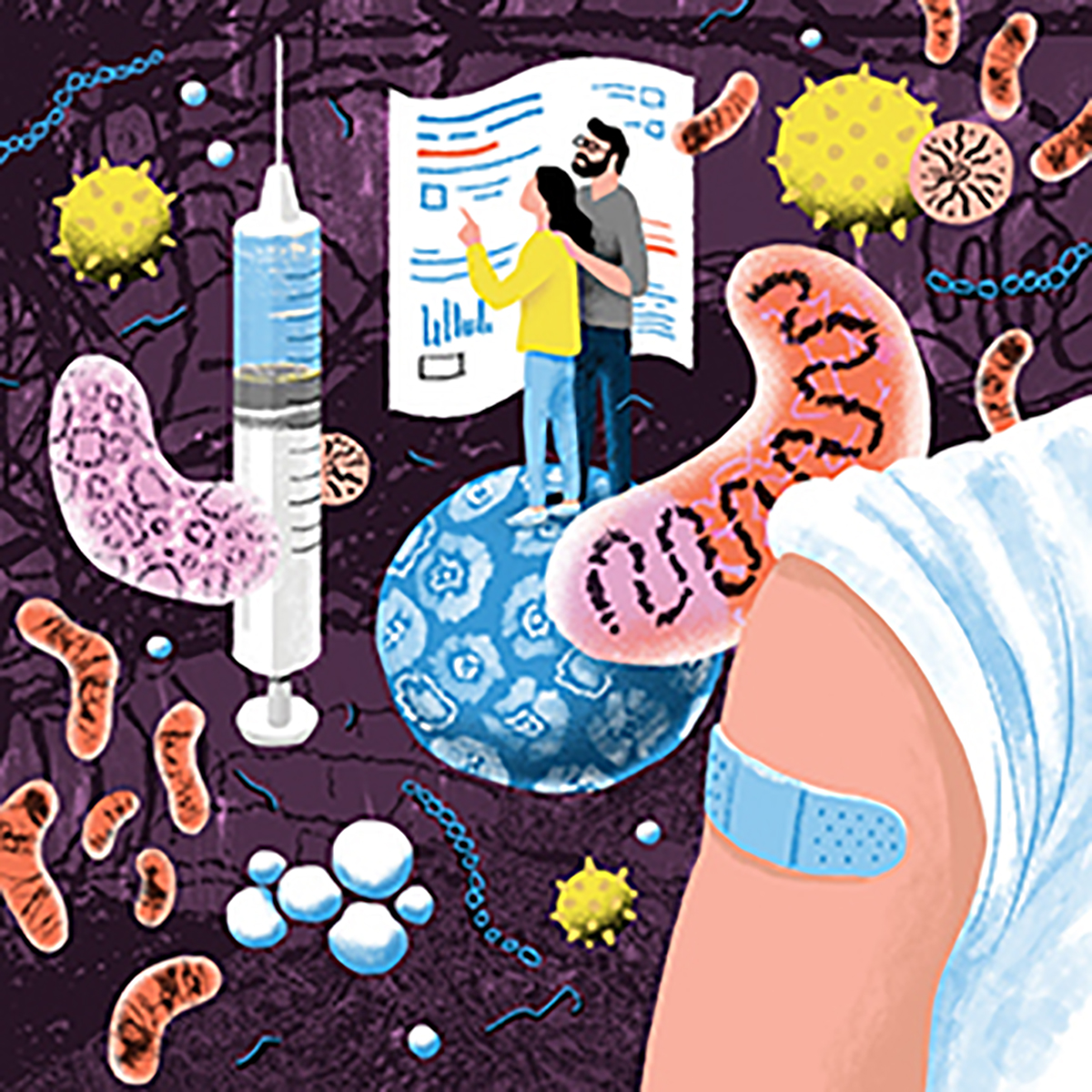Are COVID-19 Vaccines for Young Children Safe and Effective?

A conversation with Emory Professor of Pediatrics and Medicine Evan Anderson, an infectious disease physician at Children’s Healthcare of Atlanta.
In June, the Centers for Disease Control and Prevention (CDC) recommended that all children six months through 5 years should receive a COVID-19 vaccine, joining the agency’s previous recommendation for children 5 and older. “These vaccines have been well studied and thousands of children have been involved in the clinical trials that provided data to support their approval,” says Anderson, who didn’t hesitate to have his own children vaccinated for COVID. “I’ve got four kids and all got COVID-19 vaccines on the day vaccinations became available in their age range. I trust in the clinical trial process and the scientific method, which is driven by data.”
Anderson hopes to reassure parents by sharing his knowledge and providing straightforward information.
Although it is rare for children to become seriously ill from COVID, tens of thousands have. About 1,300 youth have died from COVID in the U.S., and more than 40,000 have been hospitalized with the virus. Additionally, more than 8,500 children have developed COVID-related multisystem inflammatory syndrome in children (MIS-C), which causes inflammation of internal organs and can be fatal.
Additionally, a substantial number of COVID infections occur in young children. “We saw relatively large numbers of hospitalizations in children who were not vaccine eligible, and a relatively large number of deaths occurred in infants and children less than 5,” Anderson says.
COVID vaccines have been well studied and have proven to be safe and effective. “We have a wealth of experience from children 5 years of age and older, as well as in adults, related to COVID-19 vaccines,” Anderson says. “It’s a unique situation, as hundreds of millions of doses have been given in the U.S. This should provide additional reassurance to parents.”

Emory pediatrician Evan Anderson was involved in clinical trials testing COVID-19 vaccines for children ages six months to 11 years.
Photo Courtesy of Evan Anderson
When a pregnant mother receives a COVID vaccine, it’s been determined that this provides protection against severe COVID outcomes in the baby in the first six months of life, according to data that partly came out of Children’s Healthcare of Atlanta and Emory. “This is probably due to antibody transfer through the placenta, and it also helps the mother by protecting her against COVID-19 and the risk of transmitting it to her baby,” he says.
Anderson recommends that children and family members in households with new babies also should be vaccinated for COVID to protect the youngest infants.
Children receive smaller doses of the vaccine than are given to the adults, but also require multiple shots.
Experts say that young children need two doses of the Moderna vaccine and three doses of the Pfizer vaccine.
Children who have had COVID previously are somewhat protected from serious illness if they get the virus again, says Anderson.
“But the immune response and breadth of immune response appear less robust in such cases than what is observed after two doses of COVID-19 vaccination,” he says, “So vaccination is likely to decrease risk of recurrent infection and may provide better cross-protection against current and future variants."





